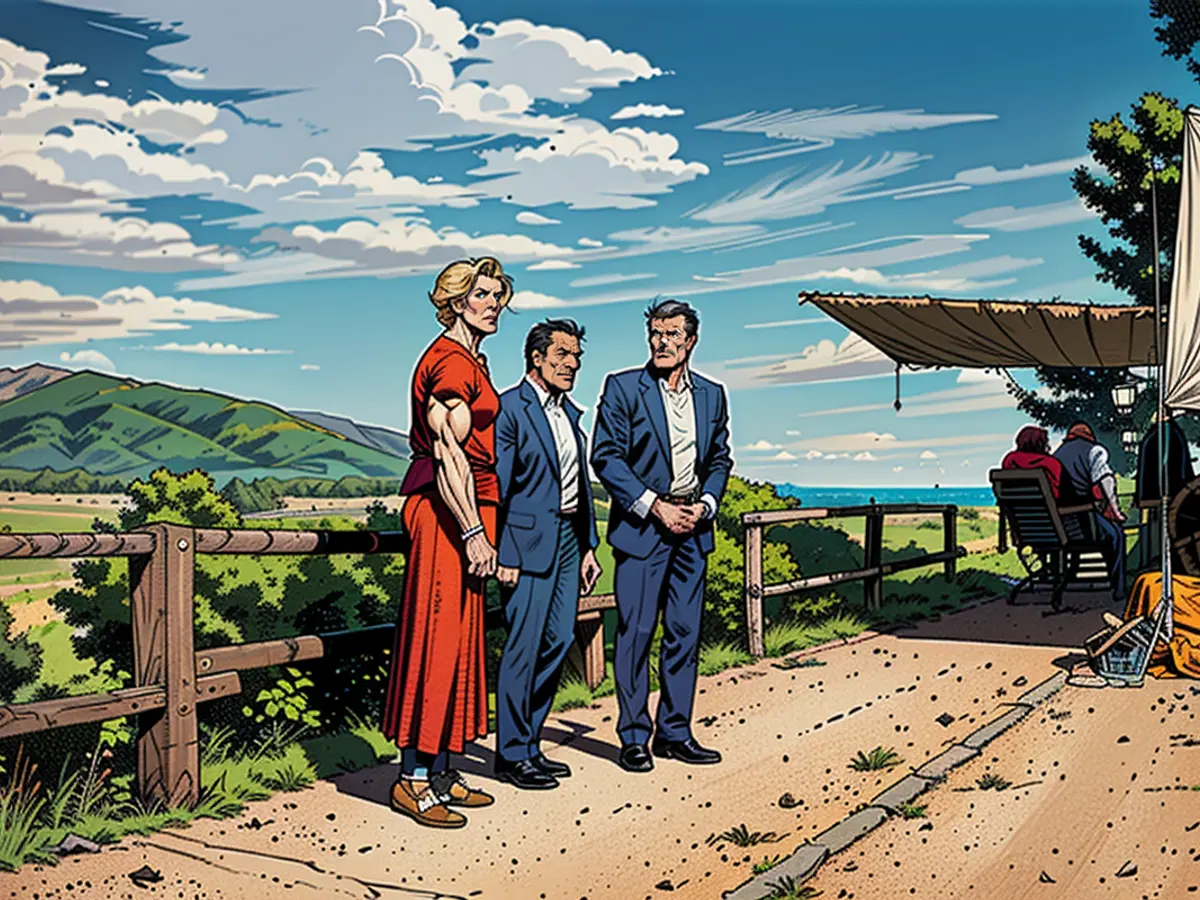Central monetary authorities convene on the open grasslands
In the tranquil expanse of Jackson Hole, nestled between the formidable Teton Mountains and the prairie dotted with the Snake River, you can engage in leisurely activities like horseback riding and fly fishing. Or, you could be a central banker, wielding influence over global financial markets from this remote location.
In the annals of financial history, Jackson Hole has gained notoriety as a sanctuary for criminals, particularly when major financial misdeeds occurred between the Eastern and Western seaboards. Fast-forward to present day, and instead of nefarious individuals, men and women who shape the economic destiny of the world flock to this secluded valley.
Anticipation runs high in the stock exchanges of New York, London, and Frankfurt, as the much-awaited "Jackson Hole" draws near. It's shorthand for a three-day conference and address by Jerome Powell, the American central bank's president, who will share his views on potential interest rate cuts, their timeline, and whether the American monetary policy will prioritize reducing unemployment or containing inflation.
While the specifics of interest rate fluctuations may seem unrelated to everyday life, their effects extend far and wide, impacting stock prices, mortgage loan costs, life insurance payouts, and wise investment decisions related to manufacturing and job creation. At Bloomberg TV, busy finance professionals gather to watch the spectacle, with a man in a plaid shirt smiling against the captivating backdrop of the Rocky Mountains.
An Elite Gathering
The conference takes place at the Jackson Lake Lodge, located a short distance from Jackson town. Visitors can indulge in outdoor activities such as fly fishing and horse riding, while the central bankers exchange critical economic theories and swap insightful opinions on the effect of monetary policy measures, like interest rate adjustments and purchasing or selling securities - all vital tools in steering the real economy.
A designated invitee to Jackson Hole is as prized among investment bankers and fund managers as a Taylor Swift concert ticket is for their beloved offspring. But only 120 guests, consisting of prominent central bankers and select government officials, receive this invitation each year. Their silence, however, translates into a palpable air of anticipation, as they ponder the meaning behind the cryptic statements they eventually release, possibly influencing trillions of dollars with these statements.
An invitation to Jackson Hole carries the weight of a gold mine; the rare attendees seldom reveal their thoughts or intentions, often leaving their coworkers and clients guessing. However, there have been notable exceptions to this rule. In 2016, Democratic presidential candidate Kamala Harris made her stance on monetary policy abundantly clear. She upheld the belief that monetary policy decisions should not be in government hands but rather entrusted to central banks, emphasizing their independence to ensure accountability and fairness.
However, President Trump holds a different view, asserting that his genius for success and wealth-creation, bestowed upon him upon ascending to the presidency, entitled him to influence interest rate decisions. His rhetoric, during his reelection campaign, hinted at a potential confrontation with the Wyoming mountains, if his visions for monetary policy alignment and execution were not met.
This article was first published on stern.de
The ECB, being a part of the elite gathering, travels to Jackson Hole for the annual conference, contributing to discussions on global economic policies and potential interest rate adjustments. During the conference, remarks by Jerome Powell, the president of the Federal Reserve, can significantly impact currency exchange rates and financial markets worldwide.








